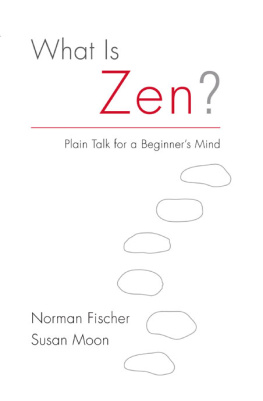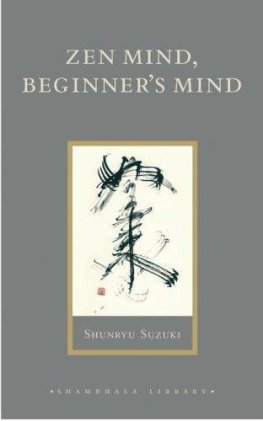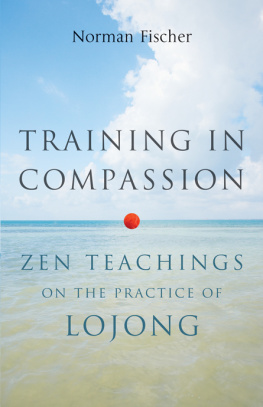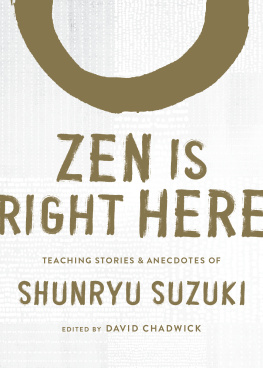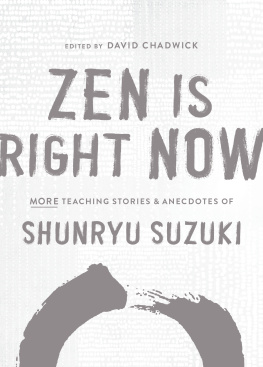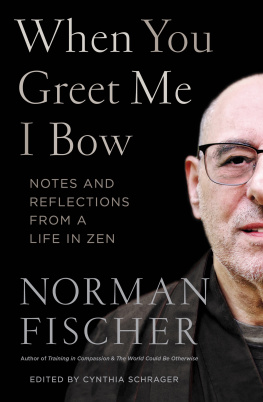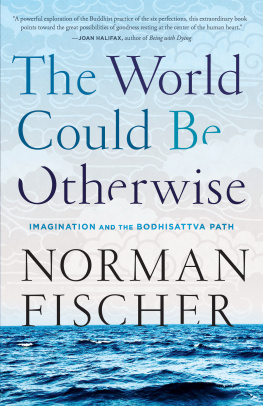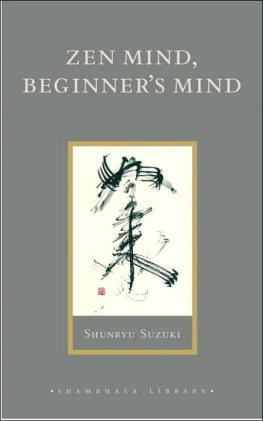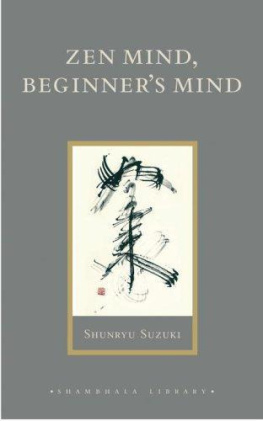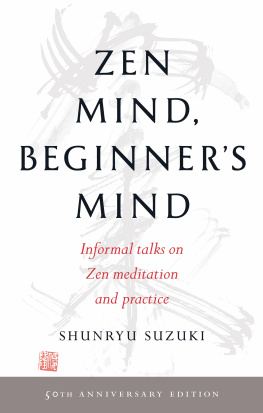What is Zen? The word is much bandied about. Is it an interior decorating style? A way to drink tea? Does it mean simplicity? Paradox? Inscrutability? Earthenware pottery?
What is Zen? Good place to begin.
A simple answer is that Zen is Zen Buddhism, an Asian religion now practiced all over the world. Broadly, there are three forms of Buddhism: Theravada Buddhism, which emphasizes the earliest scriptures that seem to be mostly about individual liberation; Mahayana Buddhism, which emphasizes compassion and social concern as much as or more than individual liberation; and Vajrayana Buddhism (the Buddhism of Tibet), which adds detailed, esoteric, ritualistic practices.
Zen is a form of Mahayana Buddhism developed in China about fifteen hundred years ago (more than a millennium after the time of the historical Buddha) and exported to Korea, Japan, and Vietnam centuries before it came to the West. In China, Mahayana Buddhism met Chinese culture to make a new form of Buddhism that was both intense and formal, and at the same time simple, even poetic and funny in its literary style. Like all religions, Zen Buddhism has clergy, ritual, scripture, hierarchy, and so on.
That is the simple answer. As your question implies, the word Zen has been appropriated in our contemporary culture to stand for a whole host of ideas, some of which come from essential ideas and practices of Zen Buddhism. The word Zen implies presence, calmness, simplicity, profound acceptance, and fully living in the present moment. These are all values implied in Zen Buddhist practice and teaching.
The quintessential practice of Zen is zazen, sitting meditation (as well discuss further in a while). So the word Zen usually carries an aura of silence and the ineffability associated with silence. Layman Pang, a legendary figure of ancient Chinese Zen, famously said that his miraculous practice was to carry firewood and draw water. So thats Zen too, full attention to all activities of everyday life.
Given all this, its easy to see why the idea of Zen has become so popular and so plastic.
Whats the point of Zen practice?
Yes, the nitty-gritty. Zen practice refers to the various spiritual practices of Zen Buddhism: sitting meditation, retreats, talks, ceremonies, meetings with teachers, textual studyall the stuff that constitutes formal Zen practice. This is a lot of work. So yes, why would anyone want to do all this? Whats the point?
Maybe people go to Zen places because Buddhism or meditation practice is fashionable (all that research about meditation and brain plasticity!). Maybe they go because they read some intriguing, puzzling, or inspiring Zen book. Maybe because they think it will make them calmer, happier, more present. Maybe for the promise of enlightenment experiences. Or maybe its the aesthetic pleasure of simple and beautiful Zen forms and meditation halls.
Whatever the apparent reasons, I believe that there are also other reasons. Theres an old Zen saying: The fire god comes seeking fire. In other words, the buddha in you comes seeking the buddha in the practice, whether or not you realize this at first.
And what does that buddha seek? Life is impossible! We are all suffering. We will all die. And we are clueless about the real nature of this sad, beautiful, immense human life. This cluelessness is a big problem that causes us a lot of pain.
We all have some suffering. Maybe we have been successful in putting it to one side, somehow distracting ourselves or denying it. But its there in the shadows, in the background, and we know it.
Why practice? To relieve suffering. Not that Zen practice makes us immune to suffering, cheerful all the time, but Zen practice does help us to understand our suffering, disentangle ourselves from it, and even appreciate it, so that we can cope, and thrive.
Zen practice helps us to be more present with the actual life we are living. And the more present we are, the more we see through our many projected delusions and illusions and enjoy our lives, seeing our difficulties as intriguing challenges rather than sad failures. Being alive is a gift and a responsibility. Practice helps us see and live it like that.
Ive heard that you shouldnt practice with gaining mind, that you shouldnt practice in order to get anything for yourself. Yet youve just pointed out that there are benefits to the practice. What about this idea of no gaining?
You often hear in Zen places (especially St Zen places, our tradition) that you shouldnt practice to get something. You should practice just to practice. For people who stay with the religion they were born into, this issue doesnt come up. Those people commonly do their practice because its a family commitment, an identity. Its what they are used to; its simply a part of life and always has been. You dont think of getting something out of it. Youre a Christian, so you go to church. This is how people in Asia view Zen and other Buddhist traditions. Theyre not looking to get something out of it. It is simply their tradition, their culture, their identity.
But most Western people who come to Buddhism are looking for something. Thats good. Yet looking for something stands in the way of getting what you are looking for. This is an odd paradox: you get what you are looking for but only when you stop looking for it. And what you get may not be exactly what you thought you were after in the beginning. It will be what you were really looking for but didnt know you were looking for. The fire god doesnt know fire until he finds it.
If you think about this for a moment, it makes sense. When you desperately press for some goal or aspiration, your very pressing becomes an obstacle. You are tense, you try too hard, you are impatient, you get discouraged easily, and this hampers you.
If this is true in ordinary endeavors, how much more so in spiritual life. The liberation we seekthe relieving of suffering, increased participation and depth in our actual lifeis, ultimately, liberation from ourselves, from the tyranny of our own habitual point of view that has kept us small and unhappy. When we press to get something out of the practice, we are reinforcing everything in us that is crabby, needy, and self-centered. When we let go of our need and just relax and enjoy our practice, we begin to see its benefit.
As we go on with our discussion, we are going to see many such paradoxes and contradictions. Zen is full of them. But thats because life is full of them. And I think we are going to find that almost all these paradoxes come from our natural, but unexamined, obsession with our descriptions of things, which turn out not to be the way things actually are. On the level of concept and description, something might seem paradoxical (to get what I am looking for I have to stop looking for it), but on the level of living, it makes sense.
Zen practice helps you to live your actual life, not your descriptions of it.
How does a person change after many years of Zen practice?
People change in so many ways, and everyone is different. I dont think I could list the top ten ways people change with Zen, as if Zen were a kind of training regimen, like army boot camp, designed to produce a certain kind of individual.
Your question makes me think about Issan Dorsey, who was a Zen priest in San Francisco. Issan had a famously checkered past as a drag queen and drug addict. He had been kicked out of the navy for homosexual activity. He was a very wild individual in San Francisco nightclubs. Then he became a Zen priest. Some years after his ordination, he started one of the first AIDS hospices in San Francisco at a time when people were confused and terrified about the disease, and San Francisco was its ground zero. Issan was fearless in taking in all kinds of people, caring for them night and day, summoning a community of others to help, raising the funds to make it happen, and doing it all as if it were the most natural thing in the world. He finally succumbed to the illness himself at the age of fifty-seven, leaving this world with gentle good humor.
Next page
